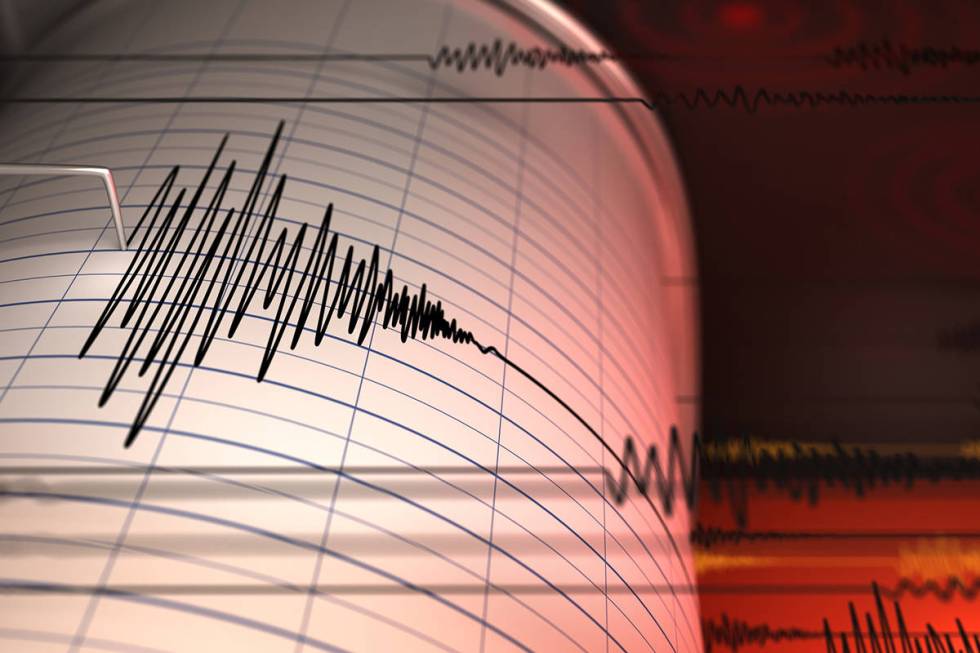5.5 quake felt in Las Vegas likely aftershock to 7.1 quake in July

A 5.5-magnitude earthquake in California could be felt throughout the Las Vegas Valley on Wednesday night.
The quake happened at 6:32 p.m. about 10 miles south of the Searles Valley in the Mojave Desert, about 185 miles west of Las Vegas, according to the U.S. Geological Survey.
5.1 magnitude #earthquake. 10 mi from Searles Valley, CA, #UnitedStates https://t.co/n6XyD6Ye7k
— Southern CA Quakes (@quakesLA) June 4, 2020
A map from the USGS showed users reporting feeling the quake throughout California, from San Diego to the Sacramento area, as well as in Lake Havasu City, Arizona.
A magnitude 6.5 earthquake struck in remote western Nevada near Tonopah on May 15, damaging U.S. Highway 95 in several areas.
Wednesday’s quake did not appear to have caused damage in Southern Nevada. A tweet from the Las Vegas Fire Department said there were no calls for fire or medical services in the aftermath throughout its jurisdiction.
“No reports of damage or injuries,” the tweet said. “Just the ground shook a little bit. All is well.”
McCarran International Airport reported no flight disruptions because of the quake, and NV Energy reported no outages.
EARTHQUAKE UPDATE: There have been NO calls into the Fire & Medical 9-1-1 Center at @LasVegasFD Headquarters which covers most of Sn Nevada. No reports of damage or injuries. Just the ground shook a little bit. All is well. #PIO1NEWS pic.twitter.com/LJRVNXMAFP
— Las Vegas FireRescue (@LasVegasFD) June 4, 2020
The USGS reported a 7.1-magnitude earthquake in Ridgecrest, California on July 5, 2019, that could be felt in Las Vegas.
Seismologist Lucy Jones said on Twitter that Wednesday’s quake is likely an aftershock of the Ridgecrest quake, which caused one death and left five people injured.
It also left 3,000 people without power in Kern County, California, and caused rock slides and gas leaks, requiring the California National Guard to deploy to assist in relief operations.
Geophysicist Jana Pursley of the USGS said even a year later, Wednesday’s earthquake is considered an aftershock in part because it took place in the same area and appears similar in characteristics to the main shock and subsequent aftershocks.
“The fault is settling down,” Pursley said. “A 7.1 earthquake causes lots of movement.”
Wednesday’s quake is tied for the strongest aftershock of the thousands of aftershocks that took place after the Ridgecrest earthquake. A 5.5 magnitude aftershock also took place on July 6, 2019.
Contact Aleksandra Appleton at 702-382-0218 or aappleton@reviewjournal.com. Follow @aleksappleton on Twitter.
Yes, an earthquake. A M5.5 at the very southern end of the 2019 Ridgecrest aftershock zone. This is a large late aftershock – do you remember that I said these are common?
— Dr. Lucy Jones (@DrLucyJones) June 4, 2020